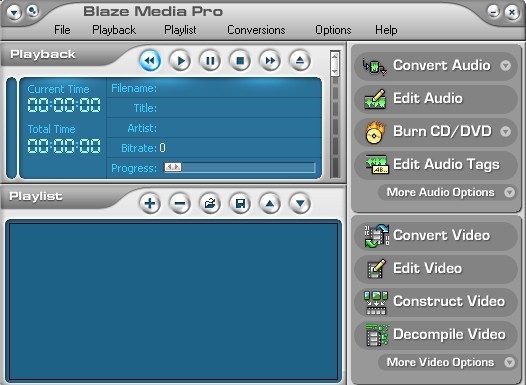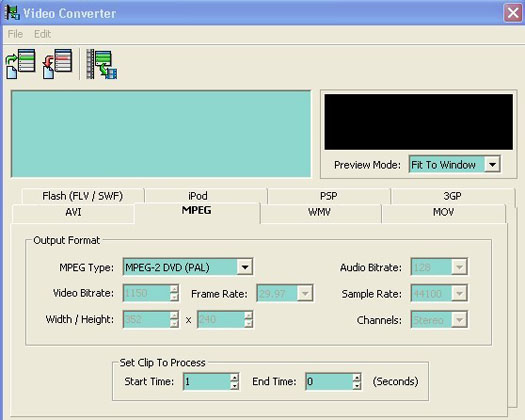 How to convert NTSC to PAL, convert PAL to NTSC? NTSC vs PAL reviews How to convert NTSC to PAL, convert PAL to NTSC? NTSC vs PAL reviews
NTSC vs PAL
What is NTSC and PAL? Basically it is the difference in frames per second used by televisions in different parts of the world. There are two television display systems in commercial use: PAL (common in Europe and parts of Asia) delivers a frame rate of 25 fps (frames per second) with 625 lines, while NTSC (used in the U.S. and Canada) delivers a frame rate of 30 fps using 525 lines. The color information of the signal is also encoded differently. Most TVs decode the PAL or NTSC signal but the color information will be lost and the picture appears black and white.
NTSC is the video system or standard used in North America and most of South America. In NTSC, 30 frames are transmitted each second. Each frame is made up of 525 individual scan lines.
PAL is the predominant video system or standard mostly used overseas. In PAL, 25 frames are transmitted each second. Each frame is made up of 625 individual scan lines.
Comparing PAL and NTSC -To choose between NTSC and PAL, rate them on the comparison parameters. The total points are automatically shown in the top row.
Differences in Color encoding in PAL and NTSC. A PAL decoder can be seen as a pair of NTSC decoders:
- PAL can be decoded with two NTSC decoders.
- By switching between the two NTSC decoders every other line it is possible to decode PAL without a phase delay line or two phase-locked loop circuits.
- This works because one decoder receives a colour sub carrier with negated phase in relation to the other decoder. It then negates the phase of that sub carrier when decoding. This leads to smaller phase errors being cancelled out. However, a delay line PAL decoder gives superior performance. Some Japanese TVs originally used the dual NTSC method to avoid paying royalty to Telefunken.
- PAL and NTSC have slightly divergent colour spaces, but the colour decoder differences here are ignored.
- PAL supports SMPTE 498.3 while NTSC is compliant with EBU Recommendation 14.
- The issue of frame rates and colour sub carriers is ignored in this technical explanation. These technical details play no direct role (except as subsystems and physical parameters) to the decoding of the signal.
Picture quality in NTSC vs. PAL - PAL lines go out at 50 fields per second (since Europe uses a 50 hertz power supply) i.e. 25 alternating lines. PAL televisions produce 25 frames per second, that causes motion to be displayed faster. PAL may have fewer frames per second, but it also has more lines than NTSC. PAL television broadcasts have 625 lines of resolution, compared to NTSC's 525. More lines means more visual information, which equals better picture quality and resolution.
How to convert from PAL to NTSC with PAL to NTSC converter?
The converse situation applies to PAL to NTSC conversions. 576 lines of resolution are downconverted to 480 lines of resolution, and frames need to be inserted to go from the 25 frames per second of PAL to the 30 frames per second of NTSC. Once again, the resultant image is of less actual resolution than the original image, as information is discarded spatially and made up temporally.
 DGPulldown is a tool for adding pulldown flags to MPEG-2 video files. It can be used to change the effective framerate without re-encoding or other lossy processes. In addition to the standard 2:3 pulldown used for film material in NTSC video, it can also add 2:2:3:2:3 pulldown flags for PAL to NTSC conversion and a number of other non-standard patterns. To convert PAL to NTSC with DGPulldown are as follows: DGPulldown is a tool for adding pulldown flags to MPEG-2 video files. It can be used to change the effective framerate without re-encoding or other lossy processes. In addition to the standard 2:3 pulldown used for film material in NTSC video, it can also add 2:2:3:2:3 pulldown flags for PAL to NTSC conversion and a number of other non-standard patterns. To convert PAL to NTSC with DGPulldown are as follows:
- First download the DGPulldown here. Decompression it!
- Using DGPulldown is about as simple as it can get. Use the Browse buttons at the top to set the source and destination files.
- Select 25 --> 29.97 and click the Convert button.
- Wait a few minutes and you will have a video file that plays at 29.97fps.

How to convert NTSC to PAL with NTSC to PAL converter?
When converting from NTSC to PAL, two things need to be accomplished. 480 lines of resolution have to be upconverted to 576 lines of resolution, and 30 images per second have to be downconverted to 25 images per second.
The resolution upconversion does not actually add any real picture information to the image, as you cannot create real picture information where none existed before. It does, however, make the picture viewable on a PAL display, and often results in a superficially better-looking image. The frame rate conversion actually results in a loss of temporal resolution, as PAL has a lower frame rate than NTSC.
 Blaze Media - The Blaze Media Pro software includes a powerful MPEG video converter feature that can convert between PAL and NTSC video standards with ease. Both MPEG-1 and MPEG-2 (including VCD, SVCD, and DVD) are supported. To convert NTSC to PAL with Blaze Media Pro are as follows: Blaze Media - The Blaze Media Pro software includes a powerful MPEG video converter feature that can convert between PAL and NTSC video standards with ease. Both MPEG-1 and MPEG-2 (including VCD, SVCD, and DVD) are supported. To convert NTSC to PAL with Blaze Media Pro are as follows:
Step1. First download theBlaze Media Pro here. Install it!
Step2. After installion the program,
open it, then you will open Blaze Media Pro.
The main window is as follows.

Step3.To use the NTSC <-> PAL converter feature of the software, click the Conversions > Video Converter menu from the software's main window or select Convert Video from the software's main interface. From the resulting video converter window, you can then choose the MPEG and other format video files you wish to convert, select the output format, and any desired settings (optional). Set the desired output video standard from the video converter window's File menu via the "MPEG Video Standard" option. (Note: in order for this option to be enabled, you must select MPEG-2 DVD, MPEG-2 SVCD, or MPEG-1 VCD for the output format. )

Step4. click the "Convert" button to begin the conversion process. Advanced video converter options are available for those who want to take advantage of them, though they are completely optional, making Blaze Media Pro the perfect software to convert from NTSC to PAL or convert from PAL to NTSC for users of any experience level.
Note: Using this software can also convert PAL to NTSC, the steps are same!.
Related
Software Step by Step Guides and Tutorials:
How to convert between NTFS to FAT32? NTFS vs FAT32?
How to recover fdisked drives?
How to convert and burn VOB AVI to DVD step by step?
How to convert hard disk files between FAT/FAT32 and NTFS format?
How to recover data from damaged or formatted disks?
How to recover files from dynamic-disk in Windows?
How to append data to the start or end of file names, folder names or file contents?
|

 RSS Feeds
BBS Forum
RSS Feeds
BBS Forum

 RSS Feeds
BBS Forum
RSS Feeds
BBS Forum
